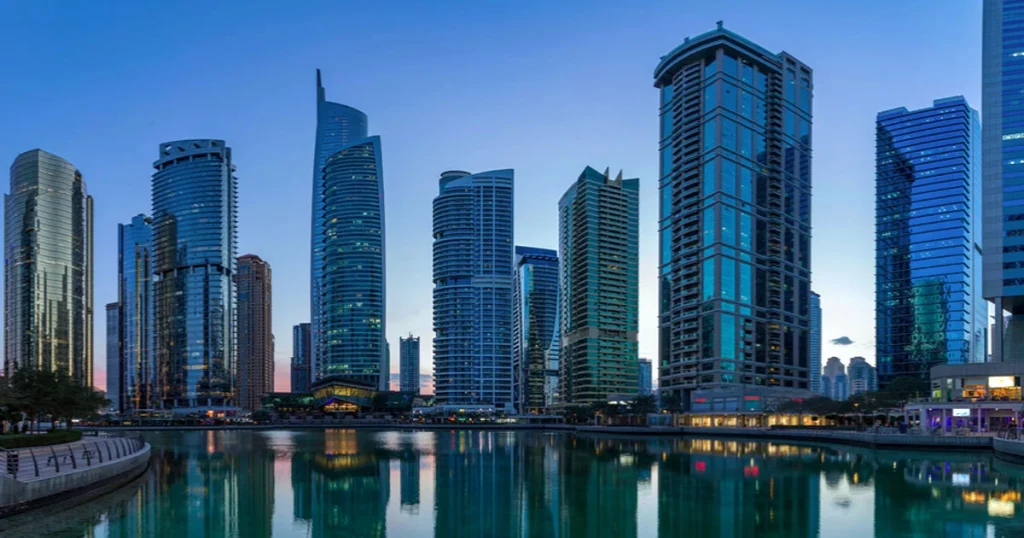Some of the links in this article are "affiliate links", a link with a special tracking code. This means if you click on an affiliate link and purchase the item, we will receive an affiliate commission.
The price of the item is the same whether it is an affiliate link or not. Regardless, we only recommend products or services we believe will add value to our readers.
By using the affiliate links, you are helping support our Website, and we genuinely appreciate your support.
Indian SMEs are redefining global growth, and Dubai is emerging as their launchpad. With zero-tax zones, bonded infrastructure, and rapid logistics networks, the city offers Indian founders a fast, stable, and cost-efficient route to international manufacturing and trade.
Small and medium enterprises have long been the backbone of India’s industrial economy, driving innovation, employment, and resilient supply chains. Today, their ambitions are global. Indian SMEs are increasingly seeking ecosystems that go beyond operational support—they need world-class infrastructure, seamless market access, and pro-growth policies. Dubai provides exactly that.
From Product to Port: Building Global SMEs
Dubai is no longer just a regional trade hub—it’s becoming an operational base for SME-led international expansion. Indian entrepreneurs are establishing lean export units in free zones such as Dubai Airport Free Zone (DAFZ) and Dubai Multi Commodities Centre (DMCC). These hubs leverage digital tools and bonded infrastructure to simplify entry into global markets.
With fast licensing, 100% foreign ownership, repatriable profits, and integrated customs, Dubai’s free zones allow SMEs to scale without red tape or heavy capital requirements. Supply chains from Jebel Ali Port to Dubai World Central Airport now connect Indian SMEs directly to over 300 cities worldwide.
Zero income tax, long-term Golden Visas for founders and families, and integrated support services are attracting Tier 2 and Tier 3 entrepreneurs, women-led businesses, and bootstrapped manufacturers ready to compete internationally.
Micro-Manufacturing and Digital Trade
Indian SMEs are exploring micro-manufacturing, B2B e-commerce, and re-export-ready models in Dubai Industrial City, where logistics corridors link bonded warehouses with fast customs clearance. AI-powered digital platforms and tokenized trade systems are helping SMEs manage supply chains efficiently and connect with global buyers.
Bilateral initiatives are also improving SME financing, trade infrastructure, and sector-specific support, particularly in advanced manufacturing and logistics.
“Our role is to provide a continuous pathway for growth,” says H.E. Mohammad Ali Rashed Lootah, President and CEO of Dubai Chambers. “We support companies with workshops and seminars that help them capitalize on bilateral frameworks and leverage Dubai’s trade infrastructure to become global competitors.”
Dubai Chambers’ international offices in Mumbai and Bengaluru guide Indian SMEs through market entry even before establishing a Dubai presence. Their network of 36 global offices facilitates strategic connections and market expansion.
Free Zones: Springboards for SME Growth
Each Dubai free zone offers unique advantages for international expansion:
- Dubai Airport Free Zone (DAFZ): Fast-track licensing for product-led ventures with integrated warehousing and export-ready facilities.
- Dubai Multi Commodities Centre (DMCC): Streamlined global trade through tokenized transactions, smart warehousing, and simplified buyer access.
- Jebel Ali Free Zone (JAFZA): Logistics backbone for India–Africa trade, offering digitized customs, sector-specific support, and advanced manufacturing opportunities.
“Our Indian Incubation Centre supports businesses from setup to logistics,” says Abdulla bin Damithan, CEO & Managing Director, DP World GCC. “We’ve partnered with Dubai Customs and Dubai Chambers to digitize trade flows and reduce turnaround times—critical for SMEs scaling globally.”
Examples of growth include Ayu Life Sciences, which announced a $9 million facility in JAFZA for next-generation medical devices. DAFZ recently launched its first smart clinic in collaboration with Fakeeh Health, reinforcing Dubai’s commitment to seamless business environments.
In Dubai Industrial City, SMEs are building micro-production and assembly units across sectors like auto components, electronics, and medical devices, directly linked to the integrated port-airport corridor.
Future Outlook: 2025–26
Dubai is designing next-generation trade infrastructure tailored for SMEs: precision manufacturing clusters, AI-powered trade portals, and advanced financing tools. Even small founder-led ventures can tap global demand without chasing venture capital.
Reforms to reduce compliance bottlenecks, accelerate working capital cycles, and digitize exports are already underway. Dubai’s 2025–26 economic agenda, guided by D33, aims to nearly double the city’s economy and propel foreign trade to US$7 trillion, creating vast opportunities in wholesale, retail, supply chain management, and advanced manufacturing.
“Indian entrepreneurs should be optimistic,” says H.E. Lootah. “With smart logistics hubs and supportive free zones, Dubai is a gateway for SMEs to scale globally.”
Dubai’s free zones are no longer just operational spaces—they are springboards for global innovation, enabling Indian SMEs to go from product ideation to international distribution with speed, efficiency, and ambition.



